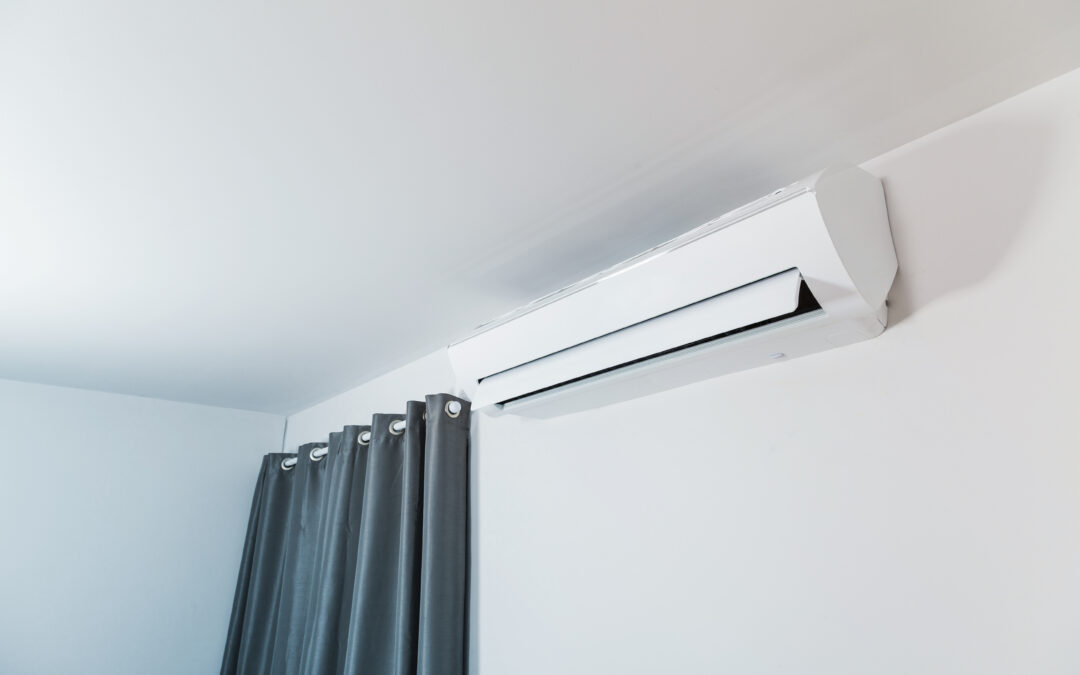If a building is to be comfortable and provide a healthy environment for its occupants, it needs more than just strong architecture and quality construction. It also needs to have an HVAC system that keeps the air inside properly heated or cooled under the appropriate conditions. From temperature control to ventilation and the health benefits that come with it, there are several advantages to a building with a quality HVAC system. If you’re a building contractor, you may find it beneficial to choose a qualified HVAC company and work with them on a long-term basis. Read on to learn how HVAC partnerships benefit building contractors, and how you can find a service to partner with for your next project.
What do HVAC Professionals do that You Can’t do by Yourself?
Lots, Actually. The most compelling argument for partnering with an HVAC specialist is to consider how challenging your work would be without one. Imagine for a moment that you’re set on providing an HVAC system for the occupants of your building, but don’t have a specialist on hand to carry out the necessary work. It would then fall to you to take care of things such as sizing the unit, installing it properly, and caring for it over the course of its lifetime. If that doesn’t sound like much work to you, you might not understand the factors involved. Let’s take a quick look at what goes into these processes.

Sizing an HVAC System: A Simple Name for a Not-so-Simple Task
Sizing an air conditioner is a complicated process. The basic idea sounds simple enough: you simply choose a system with a Btu rating appropriate for your building. However, determining what constitutes an appropriate Btu rating for any given space is a thoroughly involved task involving a considerable amount of math. There’s even a formula for sizing called the Manual J load calculation—which is so complex that most HVAC contractors don’t make its details public, out of fear that customers will try it themselves and make errors that could cost them thousands.
Installation, Maintenance and More: The Value of an HVAC Service Technician
Sizing isn’t the only hard part of an HVAC technician’s work, either. The installation process itself requires specific skills that take years to acquire and hone for professional use. HVAC technicians have to know how to lay ductwork or adapt existing duct infrastructure to a new system in specific cases. They need to know how to work with refrigerant, keep ventilation areas clear, and much more. Their work isn’t simple, and should never be taken for granted.
Alternatives to Formal Partnerships (and Why They Don’t Always Work)
Maybe you don’t doubt the importance of using a quality HVAC technician for your work, but you’re wondering why a partnership is important. After all, couldn’t you just use your own team of in-house HVAC service professionals? While this is certainly an option you could pursue, it’s worth asking yourself how likely it is to be cost-effective. Having your own in-house HVAC staff might seem at first like the most straightforward way to cover all your bases, but the likelihood that you could make enough use of them to cover the expense of employing them on a constant basis are slim.
What if, instead of hiring a full-time staff of HVAC service technicians, you simply called a service company whenever you needed one? Maybe the idea of a partnership makes you feel uncomfortable because you’re worried that it will saddle you with high-maintenance responsibilities, and you prefer a “pay-as-you-go” kind of approach. The logic behind this attitude is understandable, but the logistics of implementing it prove problematic.
The Advantages of Partn`ering with a Company You Trust
A partnership guarantees that the company you choose will always be available when you need them. That means they’ll remember each of your projects and their unique needs from visit to visit, providing you with a more consistent level of service during the course of your relationship. Without the security that a partnership provides, you may have to choose different service providers whenever you need assistance—and the time they spend learning the intricacies of your system is time you probably don’t want to waste.
When you partner with an HVAC specialist, you get the best of both worlds. You can avoid paying someone full time for work you’ll only need occasionally, but you can retain the help of professionals who build on their relationship with you over time and use it to make their work more effective. In this way, HVAC partnerships benefit building contractors by saving them money and time. Find a licensed contractor in your area who is willing to partner with your business, and you’ll be able to count on better air quality and climate control in your buildings.
FAQ: HVAC Partnerships in Building Construction
1. Why is it important for building contractors to partner with HVAC professionals?
Partnering with HVAC professionals is crucial for building contractors because HVAC systems are complex and require specialized knowledge for proper installation and maintenance. HVAC experts ensure that systems are correctly sized, installed, and optimized for energy efficiency, which directly impacts the comfort and health of building occupants. By partnering with a reliable HVAC company, contractors can deliver high-quality projects that meet modern energy standards and enhance property value.
2. What benefits do HVAC partnerships offer to contractors in the long term?
In the long term, HVAC partnerships offer contractors consistent access to skilled professionals who understand the specific needs of their projects. This relationship ensures that HVAC systems are not only installed correctly but also maintained properly over time. Contractors benefit from reduced risks of system failures, lower maintenance costs, and the ability to deliver projects on time and within budget, which ultimately leads to increased client satisfaction and repeat business.
3. How do HVAC specialists determine the correct size of an HVAC system for a building?
HVAC specialists use a detailed process known as Manual J load calculation to determine the correct size of an HVAC system. This involves evaluating the building’s size, insulation, window types, and even the local climate. An incorrectly sized system can lead to inefficiency, higher energy costs, and discomfort. Therefore, this calculation is critical and should be handled by professionals to avoid costly mistakes and ensure the system operates optimally.
4. What are the risks of not partnering with an HVAC specialist during construction?
Not partnering with an HVAC specialist during construction can lead to a range of issues, including improper system sizing, poor installation, and inadequate ventilation. These problems can result in increased energy costs, frequent system breakdowns, and even health risks due to poor air quality. Additionally, without a partnership, contractors may face delays and additional expenses in correcting these issues, which can damage their reputation and profitability.
5. Can in-house HVAC teams replace the need for external HVAC partnerships?
While having an in-house HVAC team might seem convenient, it often isn’t cost-effective for most contractors. The expense of maintaining a full-time team can outweigh the benefits, especially if HVAC needs are sporadic. External partnerships offer the flexibility of accessing top-tier expertise without the overhead costs of a permanent staff, ensuring that contractors only pay for services as needed, which is more economical in the long run.
6. Why is regular HVAC maintenance important for building contractors?
Regular HVAC maintenance is crucial because it helps prevent system failures, extends the lifespan of the equipment, and ensures that it operates at peak efficiency. For building contractors, offering regular maintenance as part of their service package can enhance customer satisfaction by reducing the likelihood of post-installation issues. Additionally, well-maintained HVAC systems contribute to energy savings and improved indoor air quality, making the property more attractive to potential buyers or tenants.
7. What advantages do HVAC partnerships provide during the construction phase?
During the construction phase, HVAC partnerships provide the advantage of expert guidance on system placement, ductwork design, and energy efficiency strategies. HVAC professionals can work alongside architects and engineers to ensure that the HVAC system is seamlessly integrated into the building’s design. This collaboration can prevent costly changes later and ensure that the building meets or exceeds energy efficiency standards from the outset.
8. How do HVAC partnerships enhance energy efficiency in buildings?
HVAC partnerships enhance energy efficiency by ensuring that systems are correctly sized, properly installed, and regularly maintained. HVAC experts can recommend energy-efficient equipment, optimize system performance, and implement advanced technologies like smart thermostats. These measures reduce energy consumption, lower utility bills, and contribute to a smaller carbon footprint, aligning with sustainable building practices that are increasingly demanded by clients and regulatory bodies.
9. What should contractors look for when choosing an HVAC partner?
When choosing an HVAC partner, contractors should look for companies with a proven track record, relevant certifications, and experience in projects similar to their own. It’s important to select a partner who is knowledgeable about the latest HVAC technologies and energy efficiency standards. Additionally, contractors should consider the HVAC company’s reputation for reliability, customer service, and the ability to provide ongoing support throughout the project’s lifecycle.
10. How does an HVAC partnership contribute to a healthier building environment?
An HVAC partnership contributes to a healthier building environment by ensuring proper ventilation, humidity control, and air filtration. A well-designed and maintained HVAC system reduces indoor pollutants, controls moisture levels, and maintains comfortable temperatures, which are all critical for the well-being of occupants. By partnering with HVAC professionals, contractors can ensure that their buildings provide a safe, comfortable, and healthy environment, which is increasingly important in today’s construction standards.




